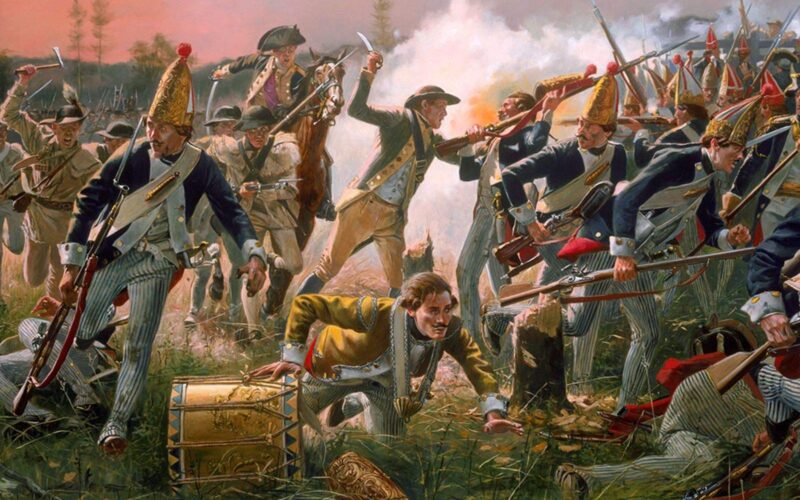The American Revolution was a pivotal moment in world history, marking the birth of the United States as a nation and changing the course of global politics. It was a political and social upheaval that took place in the late 18th century, where the Thirteen Colonies, previously under British rule, declared their independence and formed a new nation. The conflict between the colonies and Britain lasted from 1775 to 1783, and ended with the surrender of British forces in 1781 and the recognition of American independence through the Treaty of Paris in 1783.
The American Revolution was driven by Enlightenment ideas such as individual rights, the belief in representative government, and a rejection of absolute monarchy. These ideals were translated into the actions of the revolutionary leaders and sparked a spirit of nationalism and revolutionary fervor. The outcome of the American Revolution had far-reaching consequences, inspiring future movements for independence and self-determination, and shaping the political landscape of the modern world.
The Battle of Saratoga
The Battle of Saratoga was a crucial turning point in the American Revolutionary War, fought between the Continental Army led by General Horatio Gates and the British Army under General John Burgoyne in upstate New York. The battle took place in two parts, the First Battle of Saratoga on September 19, 1777, and the Second Battle of Saratoga on October 7, 1777.
In the First Battle of Saratoga, General Burgoyne attempted to take control of the Hudson River by marching south from Canada. However, he was met by the Continental Army at Freeman’s Farm, near Saratoga. The battle was fought fiercely on both sides, with the Americans suffering heavy losses but ultimately holding their ground.
In the Second Battle of Saratoga, General Burgoyne was forced to retreat to Saratoga, where he was met by reinforcements under the command of General Gates. The American army launched a surprise attack on Burgoyne’s forces, and after several days of intense fighting, the British were surrounded and forced to surrender on October 17, 1777. This was a major victory for the Continental Army and boosted American morale, as it marked the first significant defeat of a British army in the war.
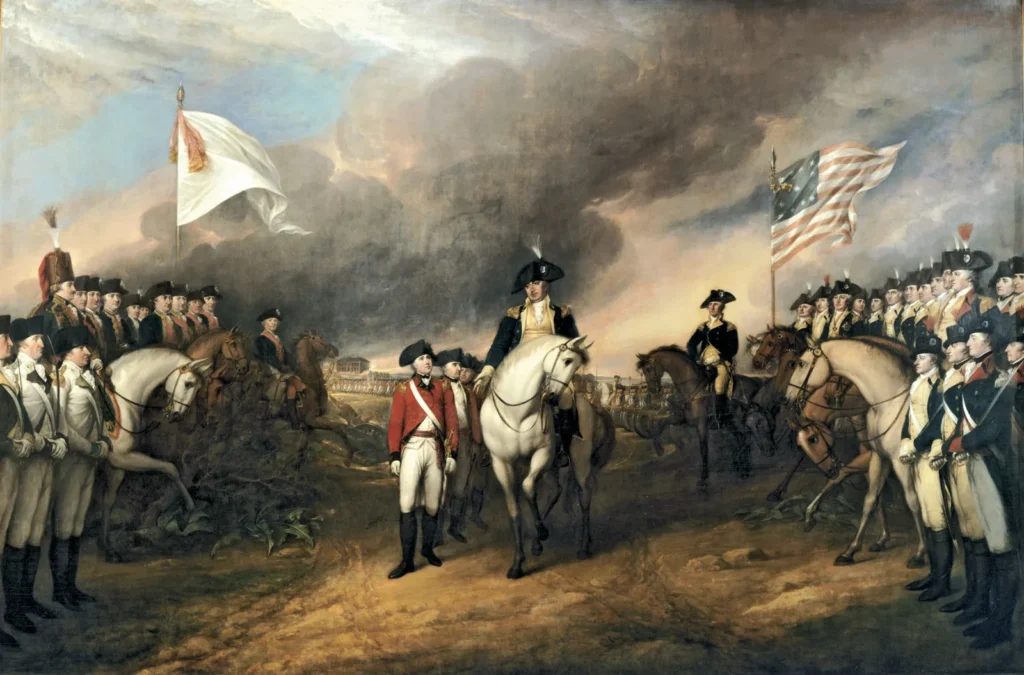
The Battle of Saratoga was also significant in that it played a key role in bringing France into the war as an ally of the United States. The French were impressed by the American victory and saw it as an opportunity to weaken their longtime rival, Britain. The French assistance provided much-needed resources, including troops, supplies, and naval support, which helped the Continental Army win the war.
Overall, the Battle of Saratoga was a pivotal moment in the American Revolution, leading to a shift in momentum in favor of the colonies and paving the way for eventual American independence.
The First Battle of Saratoga
The First Battle of Saratoga was a key engagement in the American Revolutionary War, fought between the Continental Army under General Horatio Gates and the British Army led by General John Burgoyne in upstate New York on September 19, 1777.
In the summer of 1777, General Burgoyne and his troops were marching south from Canada, with the goal of gaining control of the Hudson River and cutting off New England from the rest of the colonies. On September 19, Burgoyne’s army encountered the Continental Army at Freeman’s Farm, near Saratoga. The battle was fought fiercely on both sides, with the Americans putting up strong resistance against the better-trained and better-equipped British troops.
Despite suffering heavy losses, the Continental Army held their ground, and the First Battle of Saratoga ended in a standoff. However, the battle marked a turning point in the war, as it demonstrated the determination and fighting spirit of the American forces, and boosted morale among the colonists. The First Battle of Saratoga also provided a tactical advantage for the Americans, as it forced Burgoyne to slow his advance and seek reinforcements.
The First Battle of Saratoga was the first major engagement of the American Revolution in the northern colonies, and was a significant precursor to the more famous Second Battle of Saratoga, which took place two weeks later and resulted in the surrender of the British forces. The American victory at Saratoga helped to change the course of the war and was a major factor in convincing France to support the colonies, leading to the eventual independence of the United States.
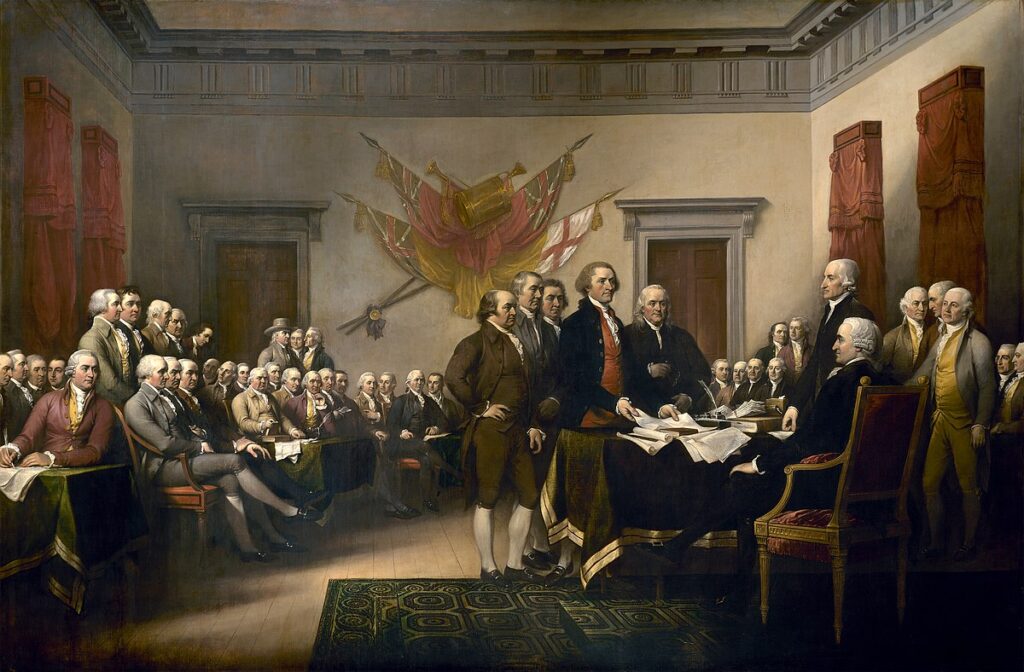
The Second Battle of Saratoga
The Second Battle of Saratoga, fought on October 7, 1777, was a decisive engagement in the American Revolutionary War, fought between the Continental Army under General Horatio Gates and the British Army led by General John Burgoyne in upstate New York.
After the First Battle of Saratoga, General Burgoyne was forced to retreat to Saratoga, where he was met by reinforcements under the command of General Gates. The American army, numbering around 12,000 men, launched a surprise attack on Burgoyne’s forces, which numbered around 8,000 men, on October 7. The battle was fought fiercely on both sides, with the Americans using their numerical advantage to surround and isolate the British troops.
After several days of intense fighting, Burgoyne was forced to surrender on October 17, 1777. This was a major victory for the Continental Army, marking the first significant defeat of a British army in the war. The Second Battle of Saratoga was also significant in that it played a key role in bringing France into the war as an ally of the United States. The French were impressed by the American victory and saw it as an opportunity to weaken their longtime rival, Britain.
The outcome of the Second Battle of Saratoga had far-reaching consequences, as it shifted the momentum of the war in favor of the colonies. The victory at Saratoga helped to boost American morale and convinced many in the colonies to continue the fight for independence. It also marked a turning point in the war, as it paved the way for the eventual defeat of the British forces and the achievement of American independence.
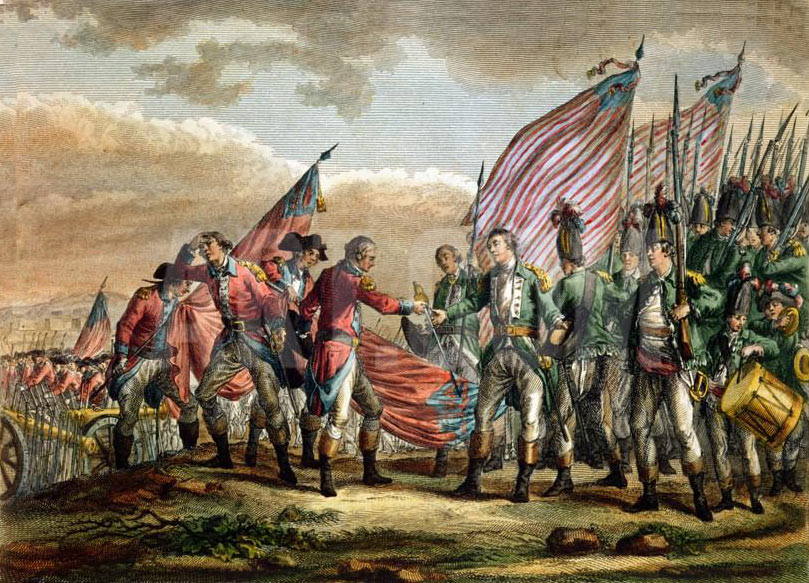
Aftermath
The aftermath of the Second Battle of Saratoga had lasting effects on the outcome of the American Revolutionary War and its impact on world history.
One of the key outcomes of the battle was the surrender of a large British army, marking the first significant defeat of a British army in the war. This surrender provided a major morale boost for the Continental Army and helped to shift the momentum of the war in favor of the colonies. The American victory at Saratoga was also a key factor in convincing France to join the war as an ally, seeing an opportunity to weaken Britain.
The Saratoga campaign was a major turning point in the war and demonstrated the determination and fighting spirit of the American forces. It was considered one of the most important events in the American Revolution and helped shape the eventual outcome of the war.
The outcome of the Second Battle of Saratoga had a significant impact on global politics, helping to spread the ideals of revolution and nationalism around the world. The American victory was seen as a symbol of hope for oppressed peoples everywhere and inspired similar struggles for independence in other parts of the world.
The outcome of the battle was a key factor in the eventual achievement of American independence and helped shape the future of the United States and the world. The victory at Saratoga is still remembered and celebrated as a defining moment in American history, and its legacy continues to influence global politics and the spread of revolutionary ideals.
How was the Battle of Saratoga a turning point in the American Revolution?
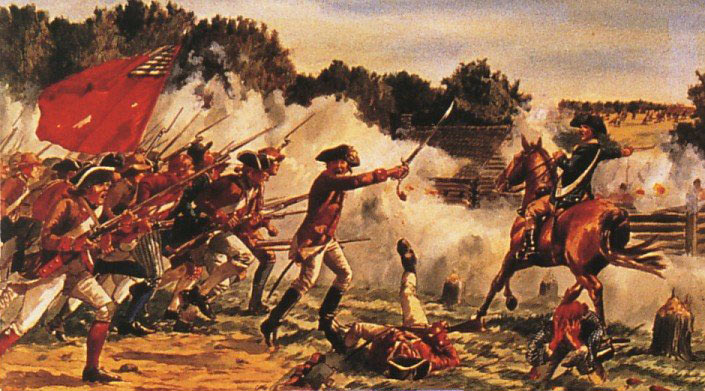
The Battle of Saratoga was a turning point in the American Revolution because it marked the first significant defeat of a British army, which helped to shift the momentum of the war in favor of the colonies. The outcome of the battle was a major morale boost for the Continental Army and demonstrated the determination and fighting spirit of the American forces.
The American victory at Saratoga was also a key factor in convincing France to join the war as an ally of the United States. The French saw the victory as an opportunity to weaken their longtime rival, Britain, and decided to support the American cause by providing military, financial, and diplomatic support. This was a major turning point in the war, as it meant that the colonies could now count on support from a major European power.
The Saratoga campaign was also significant because it had a profound impact on global politics. The American victory was seen as a symbol of hope for oppressed peoples everywhere and inspired similar struggles for independence in other parts of the world. It helped to spread the ideals of revolution and nationalism around the world and influenced the course of future struggles for independence and freedom.
In conclusion, the Battle of Saratoga was a turning point in the American Revolution due to its impact on the outcome of the war, the involvement of France, and its significance in global politics. The victory at Saratoga helped to shape the future of the United States and the world, and is still remembered and celebrated as a defining moment in American history.
Conclusion
The Battle of Saratoga was a crucial turning point in the American Revolution, marking the first significant defeat of a British army and leading to the surrender of a large portion of their forces. The outcome of the battle boosted morale and shifted the momentum of the war in favor of the colonies, and was a key factor in convincing France to enter the war as an ally of the United States. The Saratoga campaign demonstrated the determination and fighting spirit of the American forces, inspiring not only the eventual achievement of American independence, but also the spread of revolutionary ideals and nationalism around the world.
This victory at Saratoga was seen as a symbol of hope for oppressed peoples everywhere and had a lasting impact on global politics. Its legacy continues to be celebrated as a defining moment in American history and has been studied and remembered for its historical significance for over two centuries. The Battle of Saratoga was a pivotal moment in the American Revolution, and its outcome helped to shape the future of the United States and the world.


